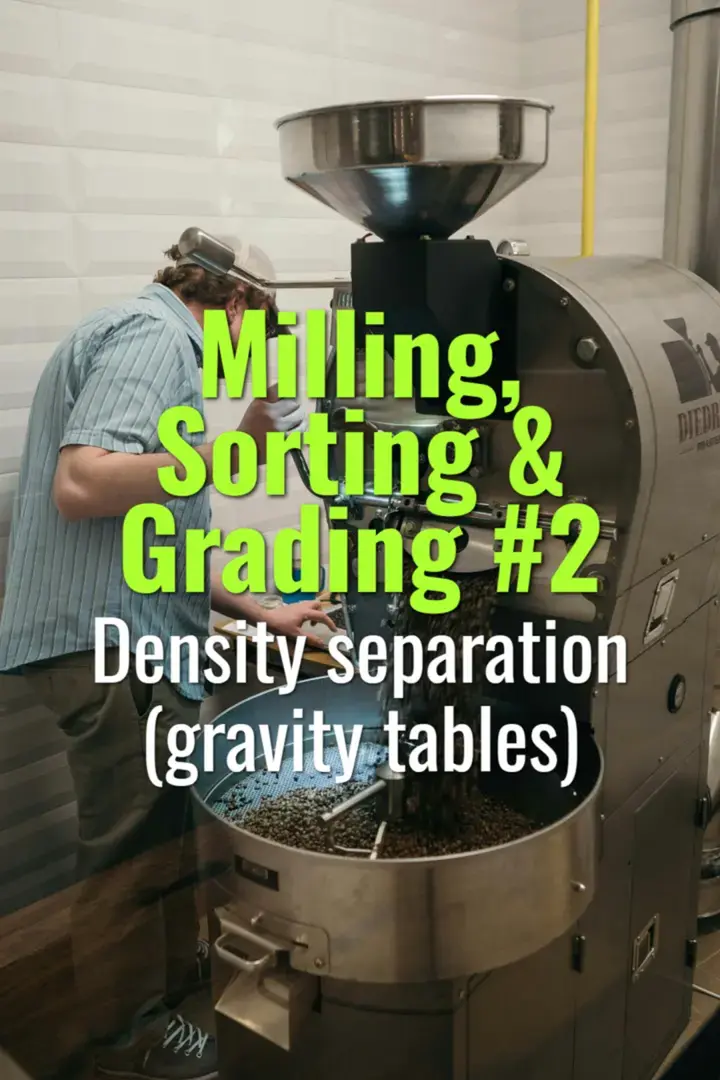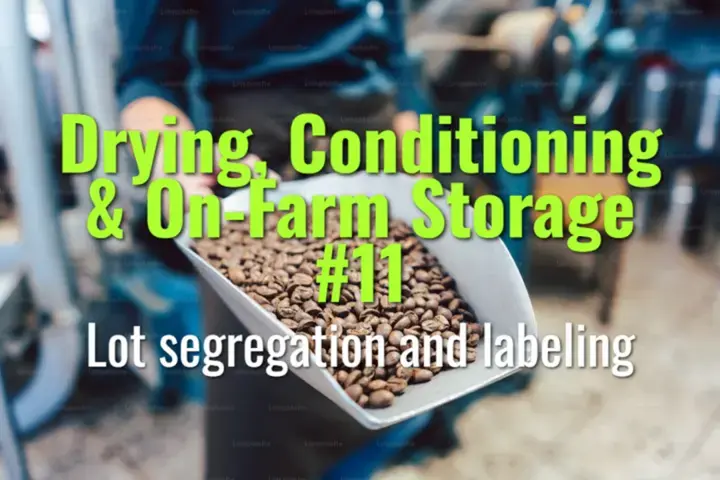
Density separation (gravity tables)
This topic explains how density separation using gravity tables is applied in coffee milling, why it matters for quality, and how it improves uniformity and market value.

This topic explains how density separation using gravity tables is applied in coffee milling, why it matters for quality, and how it improves uniformity and market value.

This topic explains how lot segregation and labeling are managed in coffee drying and storage, why they are essential for traceability, and how they impact quality consistency and market value.

This topic explains why honey and pulped natural processes carry risks of over-fermentation, the conditions that cause it, and how producers manage these risks to protect cup quality.

This topic explains how turning schedules vary by honey process color (white, yellow, red, black), why frequent turning is critical, and how it impacts drying speed, risk, and flavor development.

This topic explains how bed thickness and airflow are managed in honey and pulped natural coffee processing, why they matter for uniform drying, and their impact on flavor and defect prevention.

This topic explains drying curves in honey and pulped natural processes, how time to reach target moisture is managed, and why controlled drying is essential for flavor and stability.